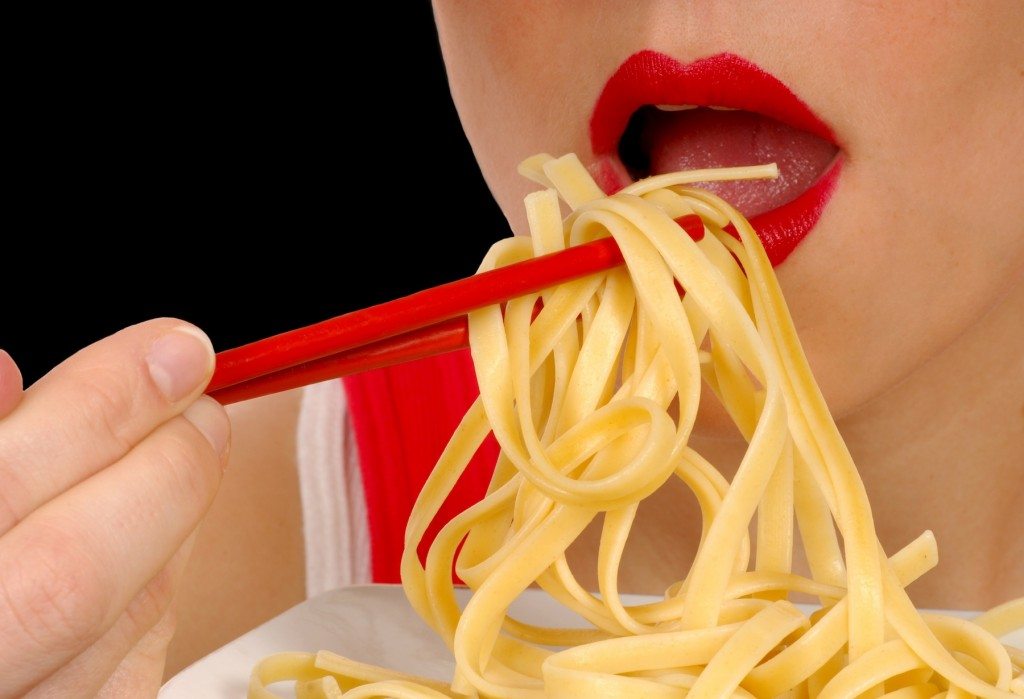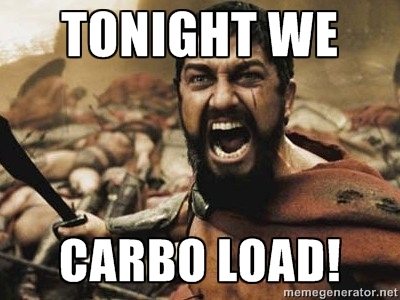Blog: What is carbo-loading (and do I need to do it)?
The ubiquitous beer garden at the end of a 5K race can be a lot of fun, not to mention an incentive to get to the finish line. Just as common is the “carbo-loading” dinner the night before the big race so that runners can get their fill and store up carbohydrates, giving them plenty of energy for the run.
But is this really necessary? Is it a good idea? And, you may have wondered, should I do it before a race?
Almost certainly not.
For several reasons, carbo-loading – or carb-loading – is a misunderstood and misused device in preparing for a race. Here’s why:
- The origin of the carb-loading strategy comes from endurance athletes who need to build up muscle glycogen stores before exertion of 90 minutes or more. Glycogen is produced when we eat carbohydrates, and it’s stored in our muscles to give us energy for normal body functioning (basal metabolism) and for exercise. Unless you and I are stranded on a desert island, we have more than enough glycogen stored in our muscles, not only for normal body functioning but also for any kind of physical demands we place on it, including 99% of the exercise we do.
- Feeling tired during exercise almost never has anything to do with a lack of carbohydrates. While it’s true that carbohydrates are our body’s primary energy source, fatigue during exercise has much more to do with conditioning than with running out of muscle glycogen. Conditioning comes from training, not from pasta.
- Eating a heavy meal the night before a big race will likely make you feel sluggish, not more energetic. I remember, years ago, the night before a race (which I hadn’t trained for, but I was 19 so I could get away with it back then) sitting down to a huge plate of fettuccini alfredo, joking that I was “in training” for my race the next day. Ugh. All that fat from the butter and cream in the sauce slows down digestion and can wreak havoc with your GI tract on race day. Not good!
- Unfortunately, many of us use an event as an excuse to eat a bunch of simple carbs (i.e. pasta, bread, anything with sugar in it). Look, we all love our carbs. And what’s not to love?! They’re delicious and they flood our brains with feel-good dopamine and serotonin that make us feel relaxed and happy. But we already get plenty of them and the excess is just going to be stored as – you guessed it – fat. A small meal (eaten three hours or so before the starting gun) is an immediate source of energy that our bodies can make good use of. A banana or a cup of oatmeal is perfect race day fuel.
Here’s when carb-loading is necessary and how to do it:
- Endurance athletes know that saturating their muscles with glycogen has to do with what they eat 2-3 days before an event, not the night before. Serious athletes will switch to a diet that is 75-90% carbohydrates in the days before a big race. It should be noted, these aren’t extra calories they’re eating; they’re shifting their percentages – away from fat and protein – in favor of more carbs.
- Exertion over many hours demands carb-loading and constant refueling. Have you ever watched the Tour de France and seen the cyclists whip out a peanut butter and jelly sandwich out of their pack to pound down for energy on the go? If they don’t replenish their energy stores they’ll “hit the wall” which refers to a shut down of brain and muscle functioning, making continued exertion next to impossible.
The bottom line is that the vast majority of us have no reason to carb-load.
So enjoy a cold one in the beer garden after the race, then go home and fix a healthy dinner. But skip the gargantuan carb-loading frenzy the night before – it’s unnecessary and will just weigh you down when you need it the least.

